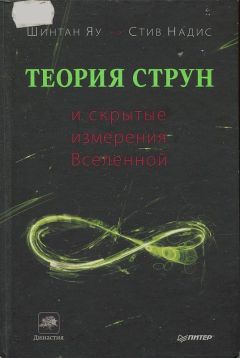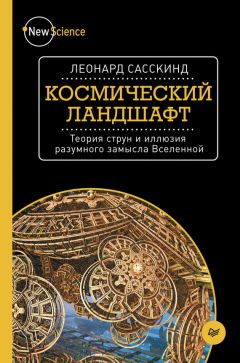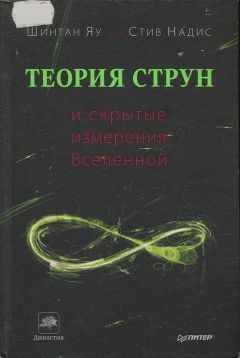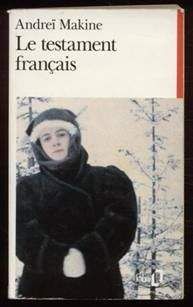86
Plesser, interview with author, September 3, 2008.
Shamit Kachru (Stanford University), interview with author, August 19, 2008.
Ashoke Sen (Harish-Chandra Research Institute), interview with author, August 22, 2008.
Jacques Distler and Brian Greene, “Some Exact Results on the Superpotential from Calabi-Yau Compactifications,” Nuclear Physics В 309 (1988): 295–316.
Doron Gepner, “Yukawa Couplings for Calabi-Yau String Compactification,” Nuclear Physics В 311 (1988): 191–204.
Kachru, interview with author, August 19, 2008.
Paul Aspinwall (Duke University), interview with author, August 14, 2008.
Wolfgang Lerche, Cumrun Vafa, and Nicholas Warner, “Chiral Rings in N=2 Superconformal Theories,” Nuclear Physics В 324 (1989): 427–474.
В. R. Greene, C. Vafa, N. P. Warner, “Calabi-Yau Manifolds and Renormalization Group Flows,” Nuclear Physics В 324 (1989): 371–390.
Brian Greene (Columbia University), interview with author, March 11,2010.
Ibid.
Doron Gepner, interview with author, August 19, 2008.
B. R. Greene and M. R. Plesser, “Duality in Calabi-Yau Moduli Space,” Nuclear Physics В 338 (1990): 15–37.
Brian Greene, The Elegant Universe (New York: Vintage Books, 2000), p. 258.
Plesser, interview with author, September 19, 2008.
Greene, interview with author, March 11, 2010.
Greene, The Elegant Universe, p. 259.
Cumrun Vafa (Harvard University), interview with author, September 19, 2008.
Greene, interview with author, March 13, 2010.
Mark Gross (UCSD), interview with author, October 31, 2008.
Andreas Gathmann (University of Kaiserslautern), interview with author, August 25, 2008.
David Hilbert, “Mathematical Problems,” lecture, International Congress of Mathematicians, Paris, 1900, http://alephO.clarku.edu/~djoyce/hilbert/problems.html (html version prepared by David Joyce, Mathematics Department, Clark University, Worcester, Mass.).
Andreas Gathmann, “Mirror Principle I,” Mathematical Reviews, MR1621573, 1999.
David Cox (Amherst College), interview with author, June 13, 2008.
Andrew Strominger (Harvard University), interview with author, February 7, 2007.
Gross, interview with author, September 19, 2008.
Ibid.
Gross, interview with author, September 24, 2008.
Eric Zaslow (Northwestern University), interview with author, June 26, 2008.
Gross, interview with author, September 24, 2008.
Mark Gross, e-mail letter to author, September 29, 2008.
Strominger, interview with author, August 1, 2007.
Zaslow, interview with author, June 26, 2008.
Gross, interview with author, September 19, 2008.
Yan Soibelman (Kansas State University), interview with author, September 26, 2008.
Aspinwall, interview with author, June 23, 2008.
Michael Douglas (Stony Brook University), interview with author, August 20, 2008.
Aspinwall, interview with author, June 23, 2008.
Gross, interview with author, September 24, 2008.
Avi Loeb (Harvard University), interview with author, September 25,2008.
American Mathematical Society, “Interview with Heisuke Hironaka,” Notices of the AMS 52, no. 9 (October 2005): 1,015.
Steve Nadis, “Cosmic Inflation Comes of Age,” Astronomy (April 2002).
Andrew Strominger, “String Theory, Black Holes, and the Fundamental Laws of Nature,” lecture, Harvard University, Cambridge, Mass., April 4, 2007.
Ibid.
Hirosi Ooguri (California Institute of Technology), interview with author, October 8, 2008.
Strominger, lecture.
Andrew Strominger and Cumrun Vafa, “Microscopic Origin of the Bekenstein-Hawking Entropy,” Physics Letters В 379 (June 27, 1996): 99-104.
Andrew Strominger, quoted in Gary Taubes, “Black Holes and Beyond,” Science Watch, May/June 1999, http://archive.sciencewatch.com/may-june99/sw_may-june99_page3.htm.
Hirosi Ooguri, interview with author, October 8, 2008.
Strominger, quoted in Taubes, “Black Holes and Beyond.”
Xi Yin (Harvard University), interview with author, October 14, 2008.
Ibid.
Xi Yin, interview with author, October 22, 2008.
Frederik Denef (Harvard University), interview with author, August 26, 2008.
Xi Yin, interview with author, October 14, 2008.
Aaron Simons, interview with author, February 9, 2007.
Ibid.
J. M. Maldacena, A. Strominger, and E. Witten, “Black Hole Entropy in M-Theory” Journal of High Energy Physics 9712 (1997), http://arxiv.org/PS_cache/hepth/pdf/9711/9711053vl.pdf.
Juan Maldacena (IAS), interview with author, September 4, 2008.
Hirosi Ooguri, Andrew Strominger, and Cumrun Vafa, “Black Hole Attractors and the Topological String,” Physical Review D 70 (2004).
Cumrun Vafa (Harvard University), interviewwith author, September 26, 2008.
James Sparks (Harvard University), interview with author, February 6, 2007.
Amanda Gefter, “The Elephant and the Event Horizon,” New Scientist (October 26,2006): 36–39.
John Preskill, “On Hawking’s Concession,” July 24, 2004, http://www.theory.caltech.edu/~preskill/jp_24jul04.html.
Andrew Strominger (Harvard University), interview with author, February 7, 2007.
Juan Maldacena, “The Illusion of Gravity,” Scientific American, November 2005, pp. 57–58, 61.
Davide Castelvecchi, “Shadow World,” Science News 172 (November 17,2007).
Taubes, “Black Holes and Beyond.”
L. Frank Baum, The Wizard of Oz (Whitefish, Mont.: Kessinger, 2004), p. 111.
Volker Braun (Dublin Institute for Advanced Studies), interview with author, November 4, 2008.
Philip Candelas (Oxford University), interview with author, December 1, 2008.
Ibid.
Andrew Strominger (Harvard University), interview with author, February 7, 2007.
Cumrun Vafa, “The Geometry of Grand Unified Theories,” lecture, Harvard University, Cambridge, Mass., August 29, 2008.
Chris Beasley (Stony Brook University), interview with author, November 13, 2008.
Burt Оvrut (University of Pennsylvania), interview with author, July 20, 2008.
Ovrut, interview with author, February 2, 2007.
Ron Donagi (University of Pennsylvania), interview with author, November 14, 2008.
Donagi, interview with author, November 19, 2008.
Candelas, interview with author, December 1, 2008.
Donagi, interview with author, May 3, 2008
Ovrut, interview with author, November 20, 2008.
Donagi, interview with author, November 20, 2008.
Ovrut, interview with author, November 20, 2008.
Shamit Kachru (Stanford University), interview with author, November 4, 2008.
Michael Douglas (Stony Brook University), interview with author, August 20, 2008.
Candelas, interview with author, December 1, 2008.
Simon Donaldson (Imperial College), interview with author, November 29, 2008.
Ovrut, interview with author, November 19, 2008.
Candelas, interview with author, December 1, 2008.
Strominger, interview with author, February 7, 2007.
Adrian Cho, “String Theory Gets Real — Sort Of,” Science 306 (November 26, 2004): 1,461.
Candelas, interview with author, December 1, 2008.
Allan Adams (MIT), interview with author, November 15, 2008.
Gary Shiu, quoted in Adrian Cho, “String Theory Gets Real — Sort Of” Science 306 (November 26, 2004): 1,461.
Shamit Kachru (Stanford University), e-mail letter to author, December 6, 2008.
Shamit Kachru, Renata Kallosh, Andrei Linde, and Sandip Trivedi, “De Sitter Vacua in String Theory,” Physical Review D 68 (2003).
Raman Sundrum (Johns Hopkins University), interview with author, February 22, 2007.
Liam McAllister (Cornell University), interview with author, November 12, 2008.





